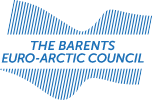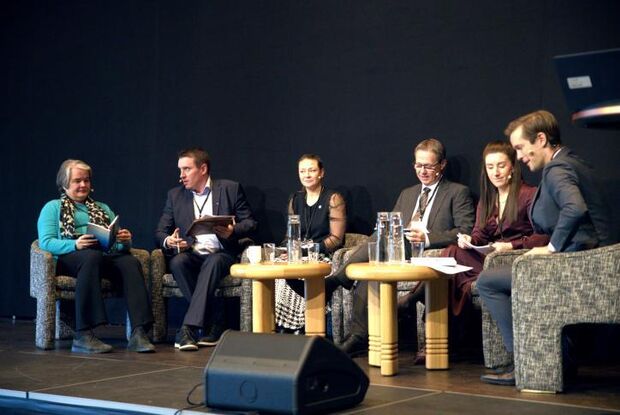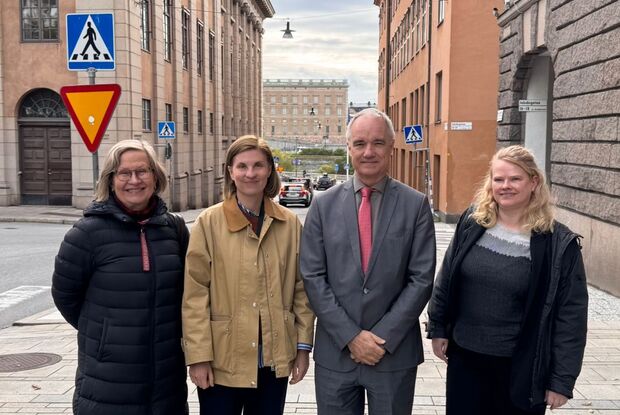The Euro-Arctic Assembly took place over two eventful days in Bodø. The Assembly was divided into four panels to tackle different aspects of the structure of the Euro-Arctic cooperation. In addition, the participants were divided into workshops on four key topic areas of great importance to the cooperation. The Assembly was also an arena for appreciation of culture in the Euro-Arctic Region, and a great place to foster dialogue and connections across borders.
Shaping the Future of Euro-Arctic Cooperation
On November 12th and 13th, the Euro-Arctic Assembly took place in Bodø. During such an unprecedented time the aim of the Assembly was to foster dialogue, as well as to create tangible next steps and suggestions for the future of Euro-Arctic Cooperation.
Published 20.11.2025
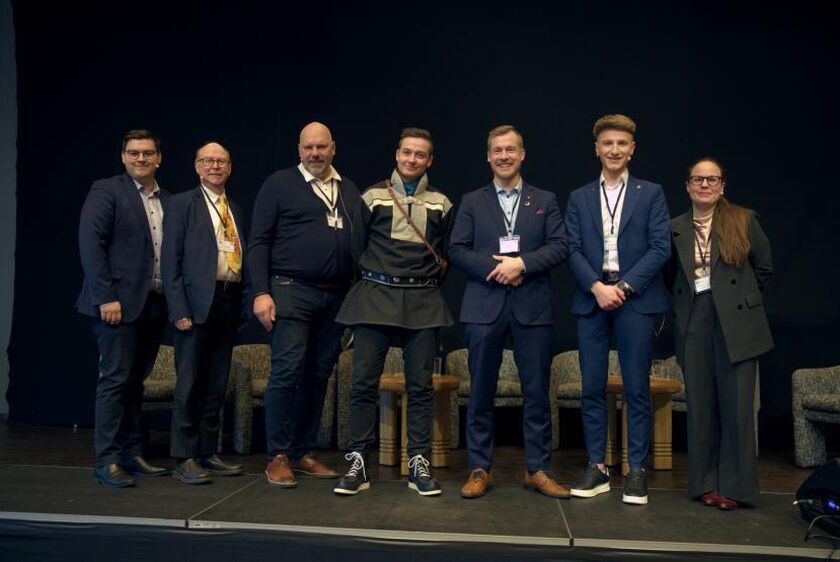
From left to right: Benjamin Furuly, Glenn Berggård, Hans-Jacob Bønå, Håkon Mudenia, Lauri Nikula, Klajdi Dedej, and Ingeborg Guldvik Grongstad
Photo: The Norwegian Barents Secretariat
Opening of the Euro-Arctic Assembly
On Wednesday November 12th the Assembly kicked off. With beautiful music by Soetkin Baptist and Sveinar Aase, the audience was treated to a story of the intertwining of Nordic Arctic and European identity. Baptist gave a beautiful introduction of her personal experience being Belgian and living in Norway. With this as a starting point, the Assembly began.
Marianne Dobak Kvensjø, chair of the Barents Euro-Arctic Council and Chair of the County Government of Nordland opened the Assembly. She underlined the importance of dialogue and continued cooperation in the Euro-Arctic, especially during these times. Her opening remarks were followed by a celebration of Culture.
The Barents Euro-Arctic Working Group on Culture awarded three cultural Scholarships to three artists – one Finnish, one Norwegian, and one Swedish. The Working Group on Culture awards these scholarships to artists and art organizations in the region, to celebrate outstanding contributions to cultural cooperation across borders in the Barents region with high artistic quality and ambitions for further development of cultural cooperation. The Award Ceremony was led by Joakim Sandberg, the Director of Cultural Affairs at Region Västerbotten. Each winner was awarded a €10,000 scholarship along with a diploma, as well as a glass bowl from the Lofoten-based glass artist Mette Paalgard.
The winners of the cultural stipend were Art Organisation Silence from Finland, Kirsi Máret Paltto from Norway, and Inga-Wiktoria Påve and Fredrik Prost from Sweden.
Following the Award Ceremony, it was time for the first session of the Assembly. The first panel was titled Looking forward: Shared Priorities for the European Arctic Region, and was moderated by Anu Fredrikson, Executive Director of Arctic Frontiers. The panel featured representatives from Norwegian, Finnish, and Swedish Ministries of Foreign Affairs, the EU Ambassador to Norway, and the Mayor of Bodø.
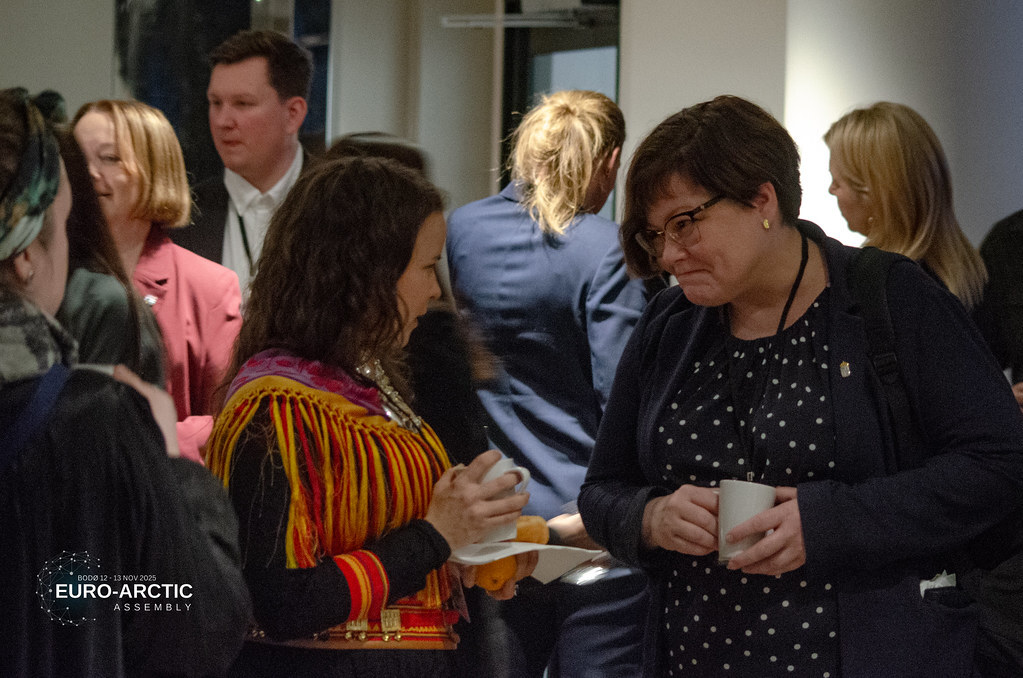
Workshops
After a short break, the participants headed to the workshops. The four thematic areas of the workshops were:
- Comprehensive Security, Civil Emergency Preparedness and Response (led by Helle Hamnevoll and Odd Jarl Borch)
- Business, Industry, Education, and Workforce (Led by Bjørn Olsen and Nina Greiner Iversen)
- Infrastructure and Security of Supply (Led by Nils Petter Rusånes and Janni Ekrem)
- Attractive and Competitive Local Communities (Led by Corine Wood-Donnelly and Liisa Lauri)
The different thematic areas of the workshop were identified back in February, when representatives from the Barents Regional Committee came together to discuss the most important areas for cross-border cooperation in the years to come. In addition, the topics of indigenous peoples, youth, and environment were acknowledged as important, these themes were cross cutting for all four workshops.
The workshops lasted for two hours, and the participants were given time to discuss two simple, but very complex questions: What benefits does effective cross-border cooperation bring for resilience, trust, preparedness, and democratic values? And: What new approaches or actions can strengthen collaboration within the next year? The participants were asked to be as specific as possible, naming concrete benefits, actions, and even suggestion who might responsible for them.
After some impressive brainstorming during the workshops, the participants were all invited to a dinner reception. The dinner featured music by Thale Krogtoft Jensen, a Bodø-based singer-songwriter. Jenny Spring, Head of the International Barents Secretariat held a speech, highlighting the importance cross-border cooperation holds to her, and her hopes for the future. The dinner left plenty of time for the participants to get to know each other better, and foster new connections.
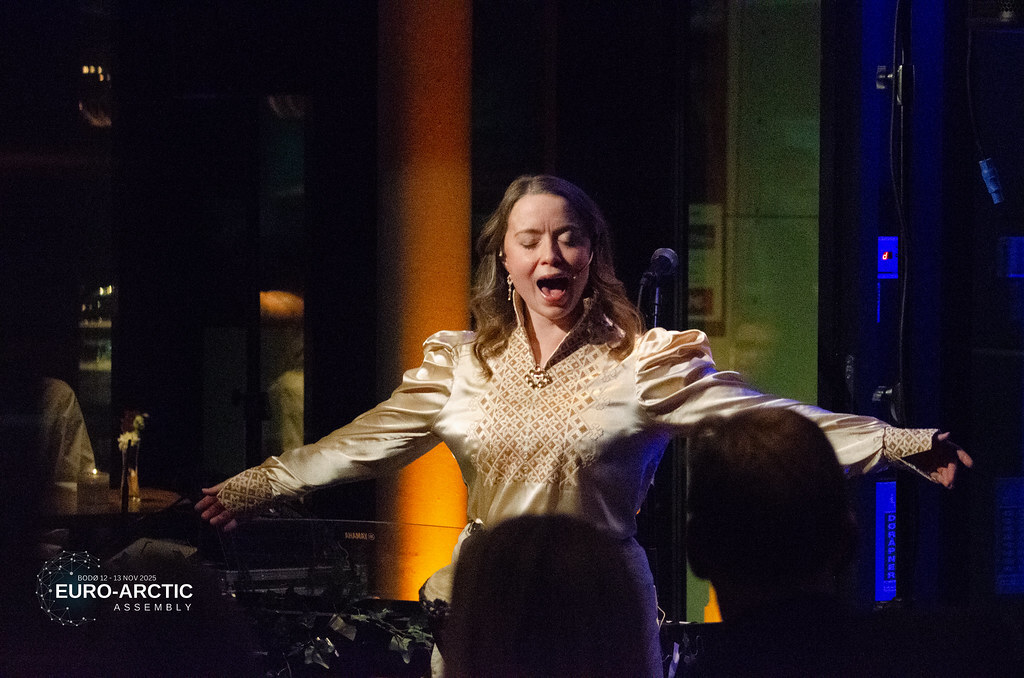
Thale Krogtoft Jensen
Perspectives and Takeaways
The second day of the Euro-Arctic Assembly started off strong with a panel summarizing the results of the workshop the day before. Led by Karsten Friis from NUPI, the panel consisted of one workshop leader from each workshop: Helle Hamnevoll, Bjørn Olsen, Corine Wood-Donnelly, and Nils Petter Rusånes. The panel discussed their workshops answers to the questions, and gave a summary of important points related to the different thematic areas.
Panel number three on the Governance of Cross Border Cooperation started with an introductory presentation by Stephan Visser of the OECD. Visser highlighted main findings from the OECD report Building More Resilient Cross-Border Regions, highlighting benefits and challenges of this type of cooperation. The panelists represented different organizations that work with cross border cooperation in the Euro-Arctic: Jenny Spring, Head of the International Barents Secretariat; Lisa Lundgren, Secretary General of the North Calotte Council; Mikael Janson, Director of the North Sweden European Office and representative of the Northern Sparsely Populated Areas (NSPA); and Kenneth Stålsett, CEO of the Norwegian Barents Secretariat. The panel discussed how existing structures that work with cross-border cooperation can deliver the results needed for strengthening cooperation, and proposals on what can be done to improve these structures.

Bjørn Olsen and Corine Wood-Donnelly
The final panel of the Euro-Arctic Assembly gathered politicians from different regions in the Euro-Arctic, as well as representatives from the youth and indigenous people to discuss Shaping the Future of Euro-Arctic Cooperation. The panel was moderated by Ingeborg Guldvik Grongstad of the Delegation of Norway to the EU. The panel consisted of Benjamin Furuly, Deputy County Mayor of Troms; Glenn Berggård, Vice Chair Regional Executive Committee of Norbotten; Hans-Jacob Bønå, County Mayor of Finnmark; Lauri Nikula, Chair of the City Council of Oulu, Klajdi Dedej, Chair of the Barents Regional Youth Council; and Håkon Mudenia, Political Adviser at the Norwegian Sámi Parliament. The panel discussed their key takeaways from the Assembly, and possible next steps for the future.

Håkon Mudenia, Glenn Berggård, Hans-Jacob Bønå, Lauri Nikula and Klajdi Dedej
Next Steps
The Euro-Arctic Assembly was a good starting point in charting the future of Euro-Arctic Cooperation. The Assembly has laid some strong groundwork in terms of connections made, new initiatives, and an understanding of prioritizations from national and regional levels. As a part of the Assembly, Nord University will be compiling a report on takeaways and results from the Assembly that can be presented to national and regional decisionmakers.
The Euro-Arctic Assembly has been coordinated as part of Nordland County Council’s Chairship of the Barents Regional Council. The Assembly has been planned and executed as a joint effort between Nordland County Council, The International Barents Secretariat, Länsstyrelsen i Vesterbotten, Council of Oulu Region and the Barents Working Group on Culture.
The Assembly was made possible through funding provided by the Nordic Institute in Greenland (NAPA) and by the Norwegian Barents Secretariat.
